January 2016, Nepal
Washing hands and brushing teeth are some of the very basic skills most of us are taught at a very young age. They become so much part of our daily routine that we never think about them. For the children in the brick kilns, this is not at all so.
They live with their parents in temporary make shift accommodation in a very dangerous, dirty and polluted environment around the kilns. There is no running water or proper sewerage. Their parents, being so burdened by the work of making and carrying bricks, have little time to make sure their children are well cleaned, let alone fed. This, of course, leaves them exposed to sometimes dire health problems.
UEMS, who are promoting good hygiene practices in the brick kilns, are very enthusiastic to use our art program as a conduit for this. Mime and clowning became the obvious tools to convey simple health messages.
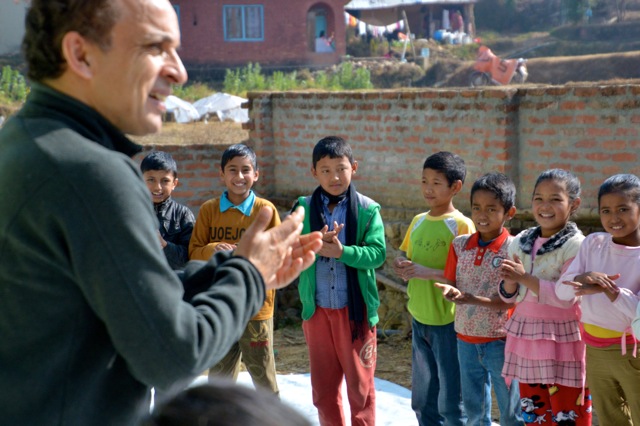
Alex leading the mime with the brick kiln children

Subarna Thapa gently shows this young clown how to wash hands.
In developing mime routines I realised very quickly that the children’s ways of trying to keep clean are very different from the normal ways of cleaning oneself. There is no bathroom, no sink, nor a tap with running water.
Playing the clown, being ridiculous, and creating laughter are great ways to gain the children’s attention. I usually start with a silly routine, making washing hands as playful as possible and then they do it with me.
This session cannot bet just about having fun. We are trying to instil an important practice that will improve their health and may even save their lives.
After clowning we follow hand-washing techniques recommended by The World Health Organisation. W.H.O. It follows what is known as the five moments, (or five steps) in hand washing. Go to the this link for details
We carefully mime all the steps with the help of the UEMS health workers. Then out comes the real soap, a jug of water, and all the children line up to wash their hands.
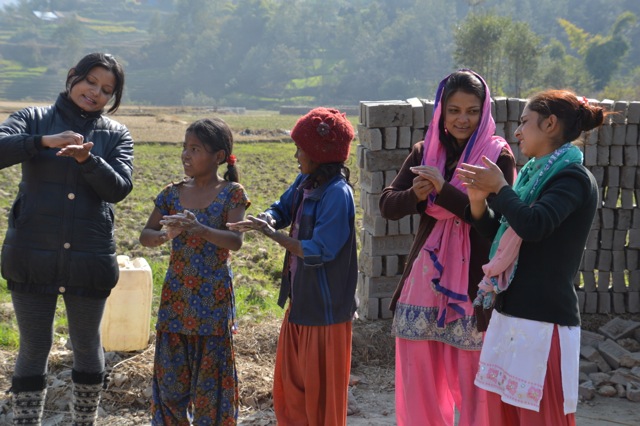
UEMS workers demonstrate the WHO techniques of washing hands to brick kiln children
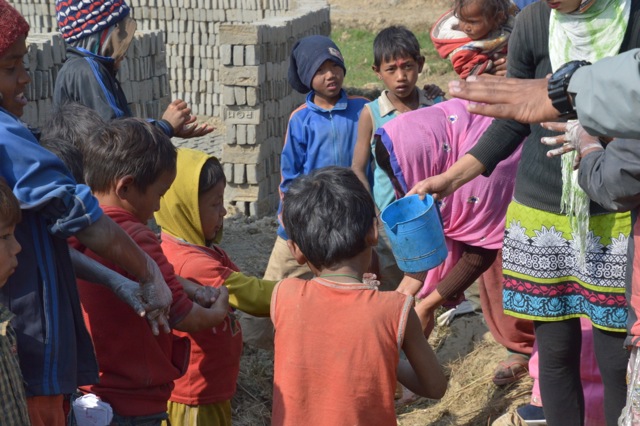
real soap and water follows the mime. UEMS workers show children how to wash hands before eating
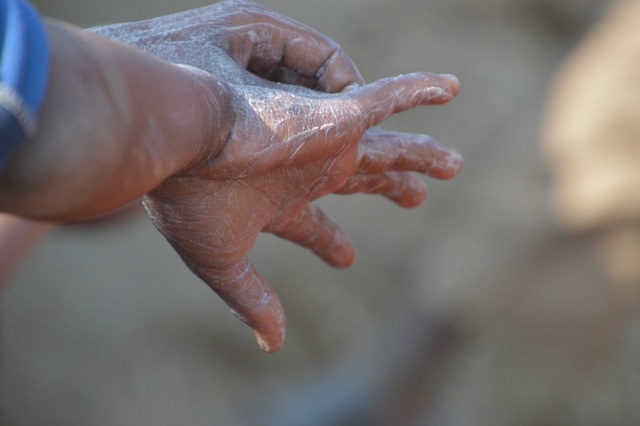
It is a similar process with brushing teeth. Tooth decay is very prevalent through out the kilns community and is especially alarming in young children’s their milk teeth.
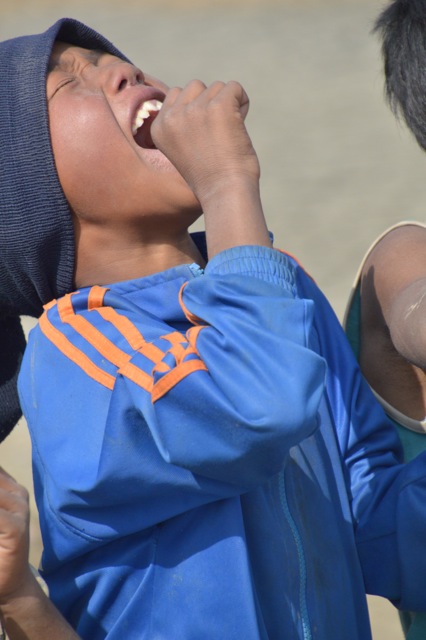
I encouraged the process of brushing teeth, into a very over the top mime routine, almost a dance, which brought gales of laughter from the children. UEMs have toothbrushes and paste for the children, and in the nest session we will be handing them out and helping to instil this valuable health message.
Alex
Artists in Community International’s objectives are creativity, education and wellbeing. We received most of the funds for this project through the generous donations of many supporters through our crowd-sourcing campaign. We are looking for donors to contribute funds to sponsor future programs – are you in a position to help?



